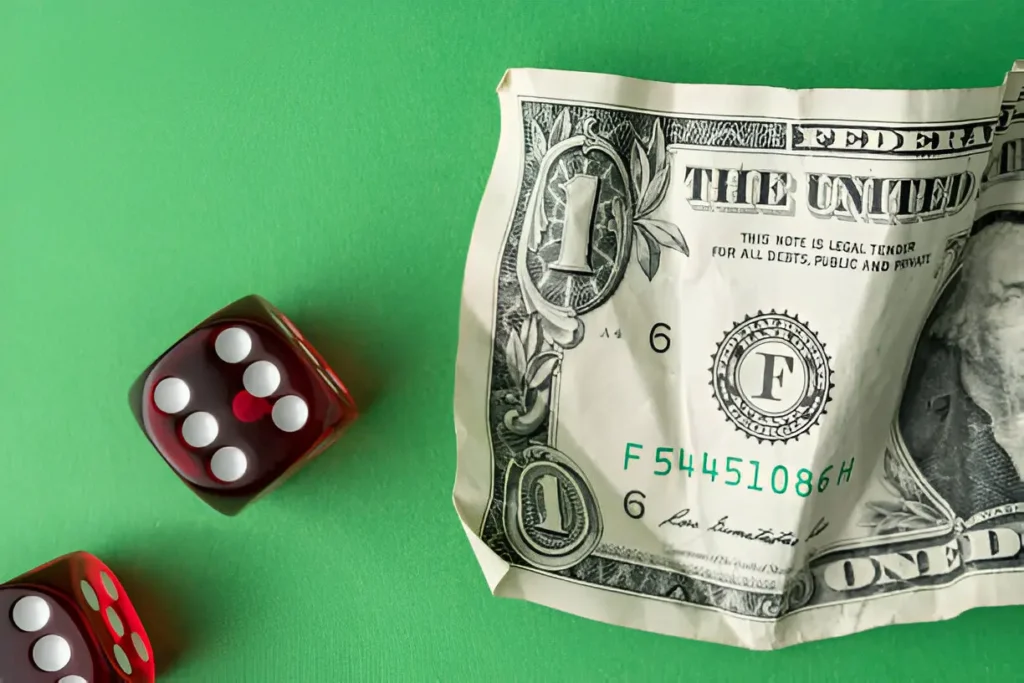You’ve set a gambling budget. Maybe $200 monthly, maybe $50 weekly. It feels reasonable when you write it down. But three weeks later, you’re pulling extra money from other categories to keep playing.
Sound familiar? Most gambling budgets fail because they look good on paper but ignore psychological reality.
Take this quiz to discover whether your current gambling budget will survive contact with real-world temptation.
Speaking of temptation, platforms like SlotMafia Casino with their massive 350% welcome bonus up to $22,500 and 5,000+ games test even the most disciplined budgets—exactly why you need realistic limits before facing such a vast choice.
Question 1: How Did You Pick Your Budget Number?
A) Calculated what’s left after all bills and savings
B) Chose a round number that “feels right”
C) Based it on what you used to spend on other entertainment
D) Set it equal to your biggest recent win
Round numbers like $100 or $500 monthly rarely align with your financial reality. They’re psychological anchors that feel good but lack foundation. Basing budgets on past wins is even worse—you’re planning for best-case scenarios instead of sustainable habits.
Question 2: When Do You Feel Tempted to Exceed Your Budget?
A) After losing multiple sessions in a row
B) When you’re ahead and feeling lucky
C) During stressful periods at work or home
D) Rarely—I stick to my limits consistently
Realistic budgets account for psychological pressure. Most players set limits for their rational, calm mindset, but never consider their frustrated, excited, or stressed mindset.
Losing streaks create the strongest budget pressure. You tell yourself, “just one more session to break even,” and suddenly your weekly budget becomes a daily budget.
Question 3: How Do You Handle Winning Sessions?
A) Winnings stay separate from next month’s budget
B) Big wins let me play extra without guilt
C) I increase next month’s budget after good months
D) Winnings just extend my current session
Most budget failures happen during winning streaks, not losing ones. You hit a $300 win, and suddenly your $100 weekly budget feels artificially small. “I’m playing with house money” becomes justification for budget violations.
Realistic budgets treat winnings and budget money the same way. A win doesn’t create extra budget space—it creates extra savings or next month’s rolled-over allocation.
Before chasing big bonuses that inflate your spending, research what you’re getting into. Resources like freeslots99.com/blog/wild-casino-bonuses/ help you understand bonus terms that could pressure your budget beyond comfortable limits.
Question 4: How Does Your Budget Compare to Other Entertainment Spending?
A) About the same as movies, dining out, or hobbies
B) Significantly more than other entertainment
C) Much less than what I spend on other fun activities
D) I’ve never compared them
Your gambling budget should align with your entertainment values. If you’re allocating three times more for gambling than all other fun activities combined, you’re probably overbudgeting. If you’re spending more on coffee than casino games but constantly feeling deprived, you’re underbudgeting.
Question 5: What’s Your Backup Plan?
A) Detailed alternative activities when I hit budget limits
B) Will probably just wait until next month
C) Haven’t really thought about it
D) Find money somewhere else to keep playing
Budgets without backup plans are just wishful thinking. When you hit your limit and still want to play, what’s your alternative? If the answer is “suffer through it” or “break the budget,” you haven’t created a sustainable system.
Working backup plan: I keep a list of activities that satisfy similar psychological needs—video games for instant gratification, fantasy sports for competition, even online poker freerolls for gambling excitement without cost.
Start small when testing your budget discipline. Platforms like mystake casino offer manageable game selections that won’t overwhelm new budget systems like massive casino libraries often do.
Scoring Your Budget Reality
Mostly A’s: Your budget has strong fundamentals. Focus on stress-testing it during emotional periods.
Mostly B’s: Your budget exists but lacks psychological realism. Add emotional buffers and clearer guidelines.
Mostly C’s: You’re budgeting optimistically rather than realistically. Either increase your allocation or strengthen your alternatives.
Mostly D’s: Your current approach isn’t really budgeting—it’s hoping. Start over with an honest assessment of your gambling relationship.
Building a Realistic Budget
Real budgets are not about finding the “right” number but about creating sustainable systems that work when you’re emotional, tired, or frustrated.
Start with brutal honesty about your gambling frequency and psychological needs. Build in buffers for emotional spending. Create specific alternatives for budget-exceeded situations. The goal is to create a system you’ll follow when willpower fails.
Also Read


